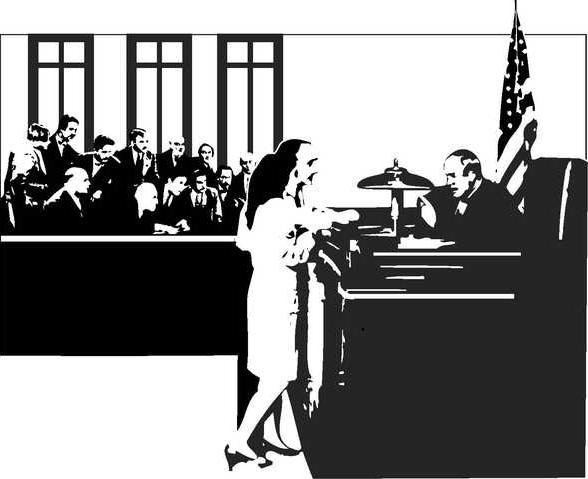The Supreme Court upheld the right to lie in one case and struck it down in another on June 16, sparking a discussion about free speech and its dangers.
In one case, Susan B. Anthony List v. Driehaus, the court held that the anti-abortion group Susan B. Anthony List (SAL) had the right to challenge the Ohio state law that prevents politicians and other participants from making blatantly false statements during a political campaign, according to Constitution Daily.
The case reached the Supreme Court after the SAL had made false statements regarding a politician’s voting record on abortion (Driehaus) during his election. Driehaus pressed charges under the anti-falsehood law, and SAL fought back, claiming First Amendment rights, The Atlantic wrote.
The Supreme Court’s ruling — which some have described as a choice between the right to the truth verses the right to free speech — has been controversial, and so has its same-day ruling on firearm purchases.
In Abramski v. United States, the Supreme Court cracked down on "straw purchases," the act of buying a gun for someone else, reports NPR. The identity of buyers must be verified by the seller of the gun; lying in order to procure a gun for someone else, even if they are a lawful gun owner, is illegal.
Both cases are centered around the concept of dishonesty, and the differing results have caused people to debate the benefits of free speech and honesty, as well as the potential for negative effects on innocent parties.
“Ask any 5-year-old and, if they’re being honest, they’ll tell you lying is wrong,” wrote Sally Kohn in the Daily Beast. “That doesn’t mean it should be illegal. And it certainly doesn’t mean that criminalizing false speech is constitutional.
Others have agreed that while lying may be bad at face value, it’s not something the government should determine on behalf of the people.
“There is no clear ‘right to lie,’ (in the Constitution) but a lot of precedent — and simple common sense — suggest it’s a bad idea to allow government officials to determine truth and threaten designated ‘liars’ with jail,” wrote Garrett Epps of The Atlantic.
Rep. Steve Stockman, R-Texas, claimed that the Supreme Court was only punishing honest people in the Abramski case.
“So-called ‘straw purchaser’ laws are intended to prevent felons or other prohibited people from buying guns,” Stockman told the Houston Chronicle. “Since felons do not submit paperwork, it effectively is used only as a weapon to target legal gun owners for paperwork issues, which is an unconstitutional application of the law.”
Rep. Sheila Jackson Lee disagreed with Stockman, stating that in this instance, safety must be the priority. Lee told the Chronicle that the Abramski ruling was a “positive decision that will save lives.”
These cases reached opposite results in regard to dishonesty. To some, particularly those invested in gun ownership, this might seem hypocritical. Others have said that both rulings “protected liberty,” according to a Chicago Tribune editorial.
“Prosecuting someone for making dubious charges against a political candidate is Orwellian,” the article read. “Prosecuting someone for lying to evade a federal gun law is just common sense.”
Twitter: BethanO2





